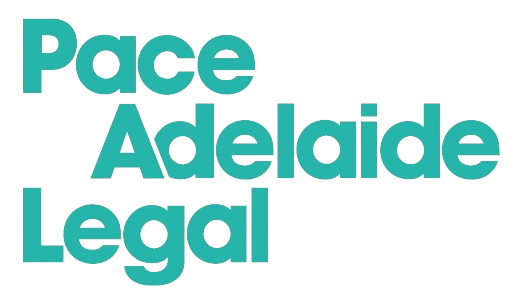For our valued landlords, agents, colleagues and friends,
The Code agreed to this month by the National cabinet can be summarised as requiring landlords and tenants to take a balanced approach to each individual leasing arrangement in order to share, in a fair way, the financial risk and cash flow impact during the COVID-19 period.
It lists several ‘leasing principles’ to be applied as soon as practicable on a case-by-case basis (which are extracted below from the Code – please scroll down for this list):
- The most important takeaway from the principles is that an individual reduction in rent, outgoings etc. payable under a lease should be decided on a case by case basis (which could be the whole of the amount payable under a lease and is based on the tenant’s reduction in trade);
- At least 50% of that reduction should be in the form of a complete waiver (meaning that it cannot be recouped by the landlord over the term of the lease);
- Tenants may waive the requirement for a 50% minimum waiver by agreement;
- Material failure by a tenant to abide by substantive terms of their lease will forfeit any protections provided to the tenant under this Code; and
- The matter will be subject to ‘binding mediation’ where agreement cannot be reached.
We are closely monitoring this situation and will be reviewing the South Australian state legislation when it is finalised.
In the interim, we recommend that parties keep the Code in mind when discussing leasing arrangements during this pandemic, consult with us if it is suspected a tenant is not abiding by the terms of the lease or manipulating the leasing principles, and in particular consult with us before taking action to evict a tenant or distrain for rent.
The Code’s Leasing Principles
- Landlords must not terminate leases due to non-payment of rent during the COVID-19 pandemic period (or reasonable subsequent recovery period);
- Tenants must remain committed to the terms of their lease, subject to any amendments to their rental agreement negotiated under this Code. Material failure to abide by substantive terms of their lease will forfeit any protections provided to the tenant under this Code;
- Landlords must offer tenants proportionate reductions in rent payable in the form of waivers and deferrals of up to 100% of the amount ordinarily payable, on a case-by-case basis, based on the reduction in the tenant’s trade during the COVID-19 pandemic period and a subsequent reasonable recovery period;
- Rental waivers must constitute no less than 50% of the total reduction in rent payable under principle #3 above over the COVID-19 pandemic period and should constitute a greater proportion of the total reduction in rent payable in cases where failure to do so would compromise the tenant’s capacity to fulfil their ongoing obligations under the lease agreement. Regard must also be had to the Landlord’s financial ability to provide such additional waivers. Tenants may waive the requirement for a 50% minimum waiver by agreement;
- Payment of rental deferrals by the tenant must be amortised over the balance of the lease term and for a period of no less than 24 months, whichever is the greater, unless otherwise agreed by the parties;
- Any reduction in statutory charges (e.g. land tax, council rates) or insurance will be passed on to the tenant in the appropriate proportion applicable under the terms of the lease;
- A landlord should seek to share any benefit it receives due to deferral of loan payments, provided by a financial institution as part of the Australian Bankers Association’s COVID-19 response, or any other case-by-case deferral of loan repayments offered to other Landlords, with the tenant in a proportionate manner;
- Landlords should where appropriate seek to waive recovery of any other expense (or outgoing payable) by a tenant, under lease terms, during the period the tenant is not able to trade. Landlords reserve the right to reduce services as required in such circumstances;
- If negotiated arrangements under this Code necessitate repayment, this should occur over an extended period in order to avoid placing an undue financial burden on the tenant. No repayment should commence until the earlier of the COVID-19 pandemic ending (as defined by the Australian Government) or the existing lease expiring, and taking into account a reasonable subsequent recovery period;
- No fees, interest or other charges should be applied with respect to rent waived in principles #3 and #4 above and no fees, charges nor punitive interest may be charged on deferrals in principles #3, #4 and #5 above;
- Landlords must not draw on a tenant’s security for the non-payment of rent (be this a cash bond, bank guarantee or personal guarantee) during the period of the COVID-19 pandemic and/or a reasonable subsequent recovery period;
- The tenant should be provided with an opportunity to extend its lease for an equivalent period of the rent waiver and/or deferral period outlined in item #2 above. This is intended to provide the tenant additional time to trade, on existing lease terms, during the recovery period after the COVID-19 pandemic concludes;
- Landlords agree to a freeze on rent increases (except for retail leases based on turnover rent) for the duration of the COVID-19 pandemic and a reasonable subsequent recovery period, notwithstanding any arrangements between the landlord and the tenant;
- Landlords may not apply any prohibition or levy any penalties if tenants reduce opening hours or cease to trade due to the COVID-19 pandemic.
The Code also contemplates where tenants and landlords cannot reach an agreement on leasing arrangements as a direct result of the COVID-19 pandemic the matter will be subject to ‘binding mediation’. This is somewhat unusual as mediation processes are generally not binding and the process of mediation generally involves a mediator trying to bring the relevant parties to an agreed negotiated settlement.

Law, done better.
Shavin Silva
Senior Associate
Click For More information On Our On Property Law Services
